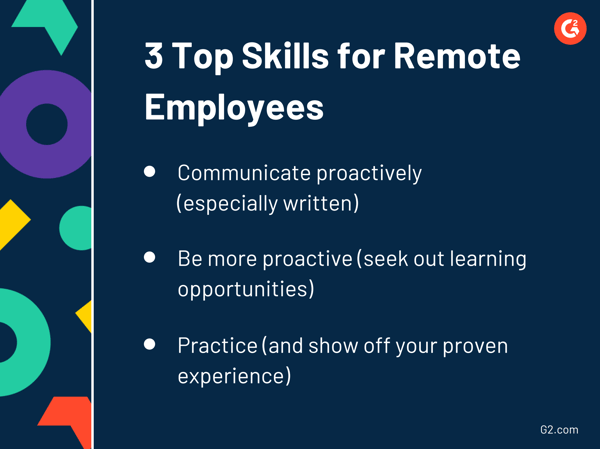February 5, 2020
 by Luke Thomas / February 5, 2020
by Luke Thomas / February 5, 2020

Interested in building your career working remotely? Here’s what you need to know.
If you’ve read news about the future of work, you may notice that remote work is a frequent topic of discussion. The fundamental principle of remote work is that people do not need to be in the same location in order for work to be done.
While remote work exists in a variety of shapes and sizes, it seems that this trend will continue to grow in the future, so let’s dig in and learn more about it.
Remote work is growing exceptionally fast. In fact, U.S. Census data indicates that 5.2% of Americans now work remotely in some capacity, up from 3.3% just a decade ago.
The rise of remote work is caused by a variety of factors, like rising housing costs in major metropolitan areas, a competitive hiring environment, globalization, and technological advancements. With this in mind, we can anticipate this trend to continue, especially considering remote work is one of the top perks a company can offer.
With this trend on the rise, if someone wants to work remotely, you might wonder how they can go about getting a remote job. Many of the articles online are focused on digital nomads, which is a bit different as these people are always travelling to new locations and many of them are contractors. There is a lack of resources online for people who would like to work full-time for a fully or partially distributed company. This post is not about traveling the world and contracting, but instead it’s about building a long-term career as a distributed worker.
With that out of the way, let’s jump into how you might be able to get hired for a remote job and hang your hat as a professional distributed worker.
The first thing we need to do is identify the set of skills that separates a high-performing remote worker from the rest. There are a few critical skills you need to learn to land a job working remotely.

As a distributed worker, you will have fewer meetings and in-person conversations, instead relying on written text to get things done. Many conversations with co-workers happen asynchronously over Slack, Microsoft Teams, or email. In the office, many of these conversations may have taken place in a meeting.
Therefore, it’s critical that you learn how to communicate effectively over writing. Additionally, you should have a working knowledge of what communication channel is appropriate for a particular conversation. One should consider researching media richness theory as a starting point to help you choose the right communication channel for your message.
For example, when collaborating with coworkers on an ambiguous project, should that happen over a chat tool or a video call? If you are a manager giving feedback to an employee, should that happen over email or elsewhere? As a remote worker, you need to know when to “switch” from one channel to another.
If you are looking to improve your writing at work, consider the following:
The next skill-set you need to develop is becoming more proactive. While there are a variety of ways to improve in this category, here are two specific tips below.
The first way to be proactive is by sharing what you are doing on a regular basis. This information can be shared with your boss, the rest of the team, and other stakeholders. The key lesson is that people should never wonder what you are working on. As a remote worker, there are times when your boss may wonder what exactly you do on a daily basis. You can eliminate this potential concern by proactively sharing information instead.
For example, you could send an update to your boss where you document what you accomplished during the week and lay out your priorities for the next week.
Another way to be more proactive at work is to actively look for projects and opportunities to improve the business outside of your normal day-to-day activities. In a business, there’s never a shortage of work that needs to be done, but there is a shortage of people willing to uncover and do the work.
In order to discover these opportunities, you need to hunt around for the opportunity, whether it’s meeting coworkers in another department and learning more about how they work, or spending some time investigating key business KPIs. If you work in an office and are not doing this now, it will be much tougher to do this as a remote worker as the information doesn’t flow as easily as a co-located environment.
Another way to establish yourself as a potential remote candidate is by having experience working with a distributed team. A question an interviewer will ask is, “have you done this before?”
On one hand, previous remote work experience is helpful, but if you don’t have full-time experience, it may not be an issue as long as you have tangible evidence and experience doing similar activities. For example, you could point to a side project, consulting, or another example where you have collaborated with other people on a project where you were in different locations. This is the crux of remote work.
For example, you may have to work on a side project with a team that is located thousands of miles away. This will force you to learn how to document and communicate effectively in a remote environment, which is an important skill set when working remotely.
It cannot be stressed enough how important these foundational components are. With that said, let’s talk specifically about tactics and ways you can get hired in a remote role.
If you are looking for a remote job, there’s a variety of job boards that post remote positions, like We Work Remotely, Remotely Awesome Jobs, Angellist, and others. Fortunately, over the past few years, more traditional job search engines like LinkedIn, Glassdoor, and Google Jobs have made it easy to find remote-friendly job postings.
If you see a job posting on these boards that you like, you should apply, but you also need to understand that there may be hundreds of other applications, which means there’s a lot of competition. You need to stand out from the rest. There are three areas to focus your attention.
While you should feel compelled to shoot for the stars, you also need to be realistic. That said, only apply for the jobs where you are a close fit.
One secret is that many companies hire primarily via referrals from existing employees. Do you know someone who works at the company? Do you know someone who knows someone who works at the company? This can give you an advantage. Expand your network to see what opportunities might arise.
As a job seeker, you need to proactively connect the dots between your application and the position they are hiring for. If a potential employer views your resume, they shouldn’t have to work to understand how your skills apply to the job at hand. As Steve Krug might say, “don’t make me think.”
The more of these boxes you check, the more likely you are to be hired remotely.
The final piece of advice for getting a remote job is to get creative and don’t overlook your current employer. Many people are able to work remotely because they mustered up the courage to ask their boss if they could. Many people are too nervous to have the conversation.
If you do great work, your boss may be willing to jump through hoops to keep you, even if you need to live somewhere else. If you have a good relationship with your manager, you should at least have the conversation. They may say no, but they may say yes. Give it a shot.
A major advantage to this approach is that your employer has already developed a baseline expectation of your work output. If you start working remotely and your output remains constant (or improves) when working remotely, it shouldn’t be a tough sell to convince your boss to continue this way of working.
In scenarios where your boss may be on the fence about remote work, ask if you could do a trial period. Instead of working five days/week away from the office, consider requesting if you can work two days a week from home. In the beginning, avoid asking to work from home on Fridays or Mondays; you need to send a signal that you are serious and won’t slack off. This approach can help you remove any perceived risk for your boss before transitioning to being fully-remote.
Remote work will continue to grow in popularity, so if you’d like an opportunity to participate, start developing key skills, connections, and make sure to explore the possibility with your current employer.
Get deeper insight into how being a remote employee would play out in the real world; read how G2 employees managed to conquer #WorkFromHomeWeek last year and the triumphs and struggles they faced as remote employees. Are you up to the challenge?
Luke Thomas is the Co-Founder of Friday, a company-wide work journal that helps you establish process and structure in the way that you communicate, helping everyone understand what’s going on at work (without adding more noise).
The work from home lifestyle is here to stay.
 by Lauren Pope
by Lauren Pope
The trend of companies going remote is here to stay.
 by Kristie Holden
by Kristie Holden
The work from home lifestyle is here to stay.
 by Lauren Pope
by Lauren Pope



